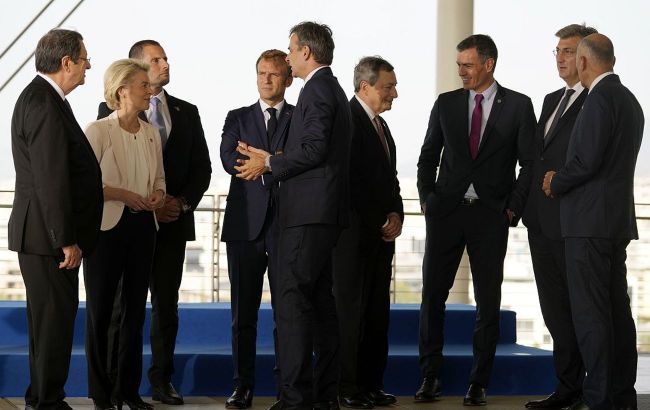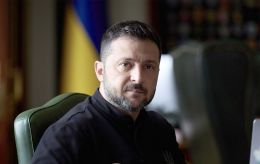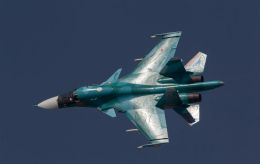EU leaders call for restoring Lebanese army's control over the country's south
 Photo: Leaders of the Mediterranean Group MED9 (x.com/botofresistance)
Photo: Leaders of the Mediterranean Group MED9 (x.com/botofresistance)
Leaders of nine southern European Union countries pledged to support the Lebanese Armed Forces in re-establishing control over southern areas of the country affected by hostilities between Israel and Hezbollah, according to the Associated Press.
Recently, the MED9 Mediterranean Group summit took place in Cyprus, which includes Italy, Spain, France, Greece, Malta, Cyprus, Slovenia, Portugal, and Croatia.
In a joint declaration following the meeting, the leaders stated they would "continue advocating for further support to Lebanon and its people, including to the Lebanese Armed Forces, which are called to play a critical stabilizing role."
"The unfolding situation in the Middle East is gravely alarming. In light of the reverberations of the Gaza conflict on the wider region, we express our extreme concern with the escalation of the military confrontation between Israel and Hezbollah," the declaration reads.
French President Emmanuel Macron stated at a press conference that the return of the Lebanese Armed Forces to the south of the country and the restoration of Lebanon's sovereignty "is essential to its peace and stability."
Macron did not specify what form this support would take but noted that a conference scheduled for October 24 at the ministerial level in Paris would aim to increase assistance to Lebanon amid the humanitarian crisis and strengthen the country's armed forces and internal security forces.
After this conference, Macron and Italian Prime Minister Giorgia Meloni announced that the G7 defense ministers' meeting would also explore ways to assist the Lebanese army in advancing to the south.
The EU leaders' statement supporting the Lebanese Armed Forces came after US Secretary of State Antony Blinken discussed with his Saudi, Qatari, and French counterparts how the election of a new president in Lebanon could reduce tensions in the Middle East by compelling Hezbollah to withdraw its forces from the northern border with Israel.
Meloni and Spanish Prime Minister Pedro Sánchez joined Macron in condemning what the French president termed deliberate attacks on Israel by UN peacekeeping forces in southern Lebanon (UNIFIL). France, Spain, and Italy contribute troops to UNIFIL.
“We condemn it, we do not tolerate it, and we do not tolerate it happening again,” Macron said.
Sánchez and his Slovenian counterpart Robert Golob supported Macron's call for a suspension of arms supplies to Israel, which they believe would be an effective means of de-escalating the war in Lebanon and Gaza.
"We haven’t sold weapons to Israel since the beginning of this war. And the logic is simple. Without weapons, there is no war," Sánchez remarked.
War between Israel and Hezbollah
Since October 1, the Israeli army has been conducting a military operation against Hezbollah militants in southern Lebanon, attempting to push them away from the borders with Israel.
According to recent reports, the Israeli army has lost 15 soldiers during this operation.
Lebanese militants, supported by Iran, shell northern Israel daily.
Media reports indicate that the US and several Arab countries are negotiating a complete ceasefire on all fronts in the Middle East region.
Meanwhile, Germany has decided to continue supplying arms to Israel.

